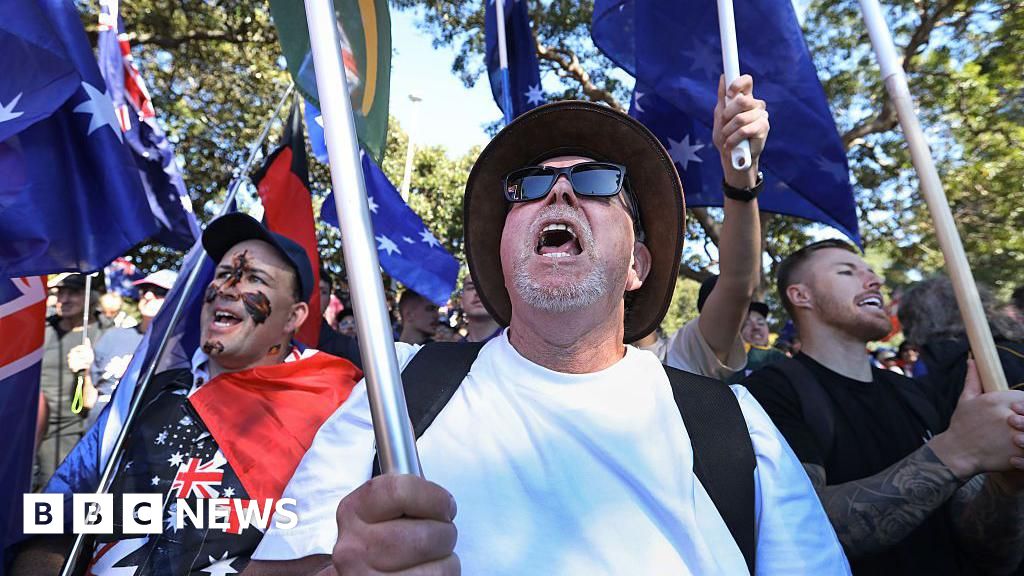
Thousands of Australians took to the streets over the weekend in anti-immigration rallies that have sparked widespread condemnation from government officials. The demonstrations, which occurred in major cities such as Sydney and Melbourne, have been linked to far-right groups and have raised concerns about the rise of right-wing extremism in the country.
In Sydney, up to 8,000 people gathered for the rally, as reported by ABC Australia. The event was heavily policed, with hundreds of officers deployed to ensure public safety. Despite the large turnout, authorities reported “no significant incidents.” Meanwhile, in Melbourne, tensions escalated when protesters clashed with attendees of a separate pro-Palestine rally.
Political Backing and Far-Right Involvement
The rallies were notably attended and promoted by several opposition politicians, including One Nation senator Pauline Hanson and federal MP Bob Katter. The presence of these figures has drawn criticism from government officials who accuse them of aligning with extremist ideologies.
Among the speakers at the Melbourne rally was Thomas Sewell, a known neo-Nazi, who addressed the crowds from the steps of Parliament House. The involvement of such figures highlights the far-right links that have been a point of concern for many Australians.
“Australia’s unity and shared values have been eroded by policies and movements that divide us,” states the March for Australia website, which organized the rallies.
Government and Public Response
The Australian government has been vocal in its opposition to the rallies. Home Affairs Minister Tony Burke emphasized that there is “no place for any type of hate in Australia.” He further stated, “We stand with modern Australia against these rallies – nothing could be less Australian.”
Dr. Anne Aly, the Minister for Multicultural Affairs, echoed these sentiments, underscoring the government’s commitment to social cohesion. “We stand with all Australians, no matter where they were born, against those who seek to divide us and who seek to intimidate migrant communities. We will not be intimidated,” she declared.
The rallies come at a time when Australia is grappling with a rise in right-wing extremism. Earlier this year, the government made the Nazi salute punishable by a mandatory prison term, reflecting its stance against hate-driven ideologies.
Clashes and Counter-Demonstrations
In Adelaide, police estimated that 15,000 people were present at both a rally and a counter-demonstration. Local media reported that the crowds were “generally well-behaved,” although the presence of a demonstrator with a placard supporting Dezi Freeman, a conspiracy theorist accused of a recent police shooting, added a layer of tension to the event.
The rallies were also supported by some anti-lockdown campaigners who gained prominence during the Covid-19 pandemic. This intersection of various fringe movements has raised alarms about the potential for increased radicalization.
Looking Forward: Implications and Concerns
The recent rallies underscore the challenges Australia faces in maintaining its multicultural fabric amidst growing divisive rhetoric. The government’s firm stance against such demonstrations is a clear signal of its commitment to preserving social harmony.
Experts warn that the rise of far-right activism could have long-term implications for Australia’s social and political landscape. The involvement of political figures in these rallies further complicates the issue, as it lends a degree of legitimacy to extremist views.
As Australia navigates these turbulent times, the focus remains on fostering unity and addressing the root causes of division. The government’s proactive measures, coupled with public condemnation of hate-driven ideologies, are crucial steps in ensuring that Australia remains a nation that values diversity and inclusivity.







